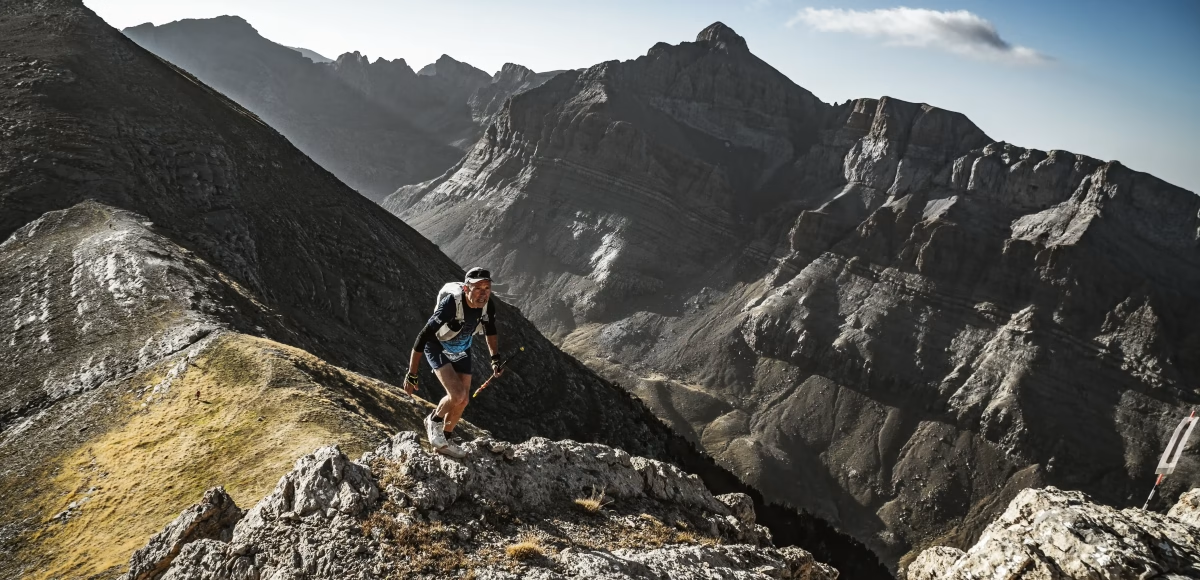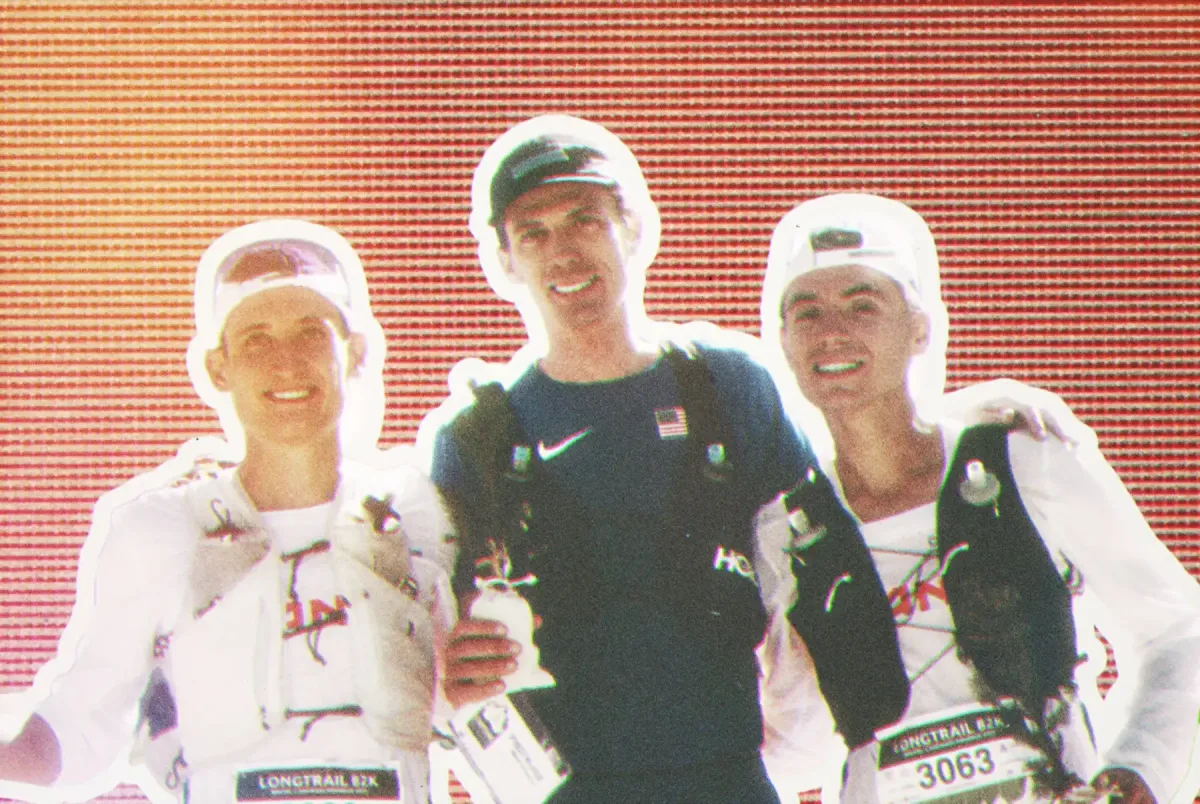Table of Contents
When most USA Trail Running fans think about the pinnacle of the sport, their minds go to Chamonix before the World Trail and Mountain Running Championships in Canfranc, Spain.
UTMB has become the cathedral—bright lights, global stage, a pilgrimage that defines careers.
But there’s another gathering this fall, tucked deep in the Spanish Pyrenees, that asks a different question.
Not can you win as an individual, but what does it mean to carry a jersey—your country’s colors—into the mountains?
[Who is on the Long Trail Team?]
The World Mountain and Trail Running Championships are coming to Canfranc-Pirineos. For the first time, the United States is sending what can only be described as a loaded long trail squad—men and women who already know how to win in ultras, now stepping into an 82-kilometer crucible against the best in the world.
Sadly, I’m not traveling to Spain. I’ll be watching from afar, like most of us. But I care about this team in a way I haven’t felt for UTMB or Western States. Because this race isn’t about brands or individual arcs. It’s about whether American trail running, in all its depth and grit, can measure up when the sport stops being individual and becomes national.
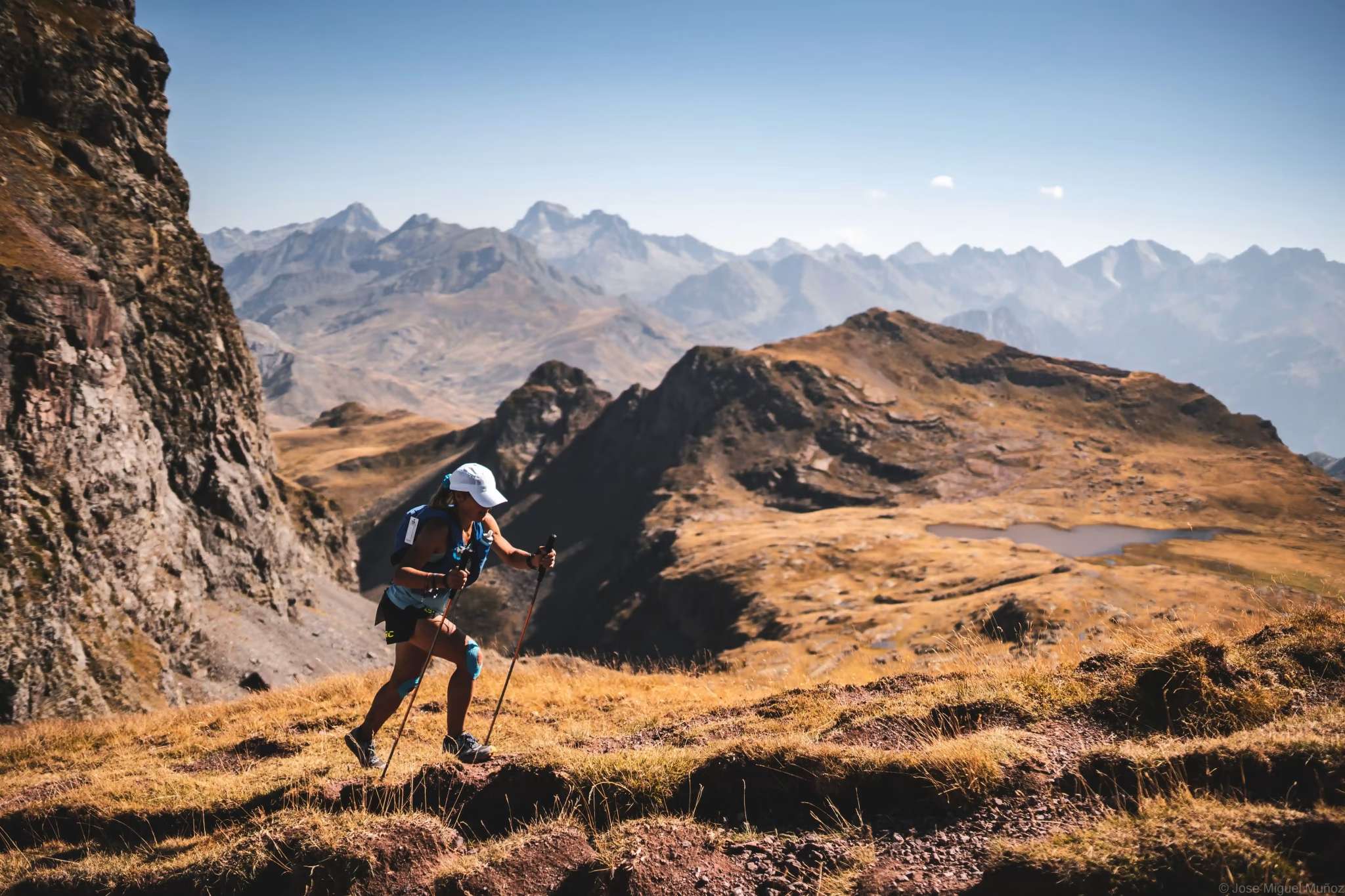
The Weight of a Country’s Jersey
USA Trail Running is still a fiercely individual sport. We race for sponsors, for personal goals, for buckle collections and course records. Western States has its lore, Hardrock its mystique, UTMB its spectacle. But none of those ask an athlete to step outside their own story and line up as part of a national team.
That’s what makes Canfranc different. The U.S. jersey changes the frame. These runners aren’t just racing for themselves or their sponsors—they’re racing for all of us. For a culture of mountain and trail running that has long thrived in pockets across the country but hasn’t always shown up with the same unity or focus on the world stage.
You feel that weight in Olympic sports all the time. We watch gymnasts, sprinters, swimmers compete not just as individuals but as representatives of something larger. Trail running rarely gives us that frame. The World Championships do.
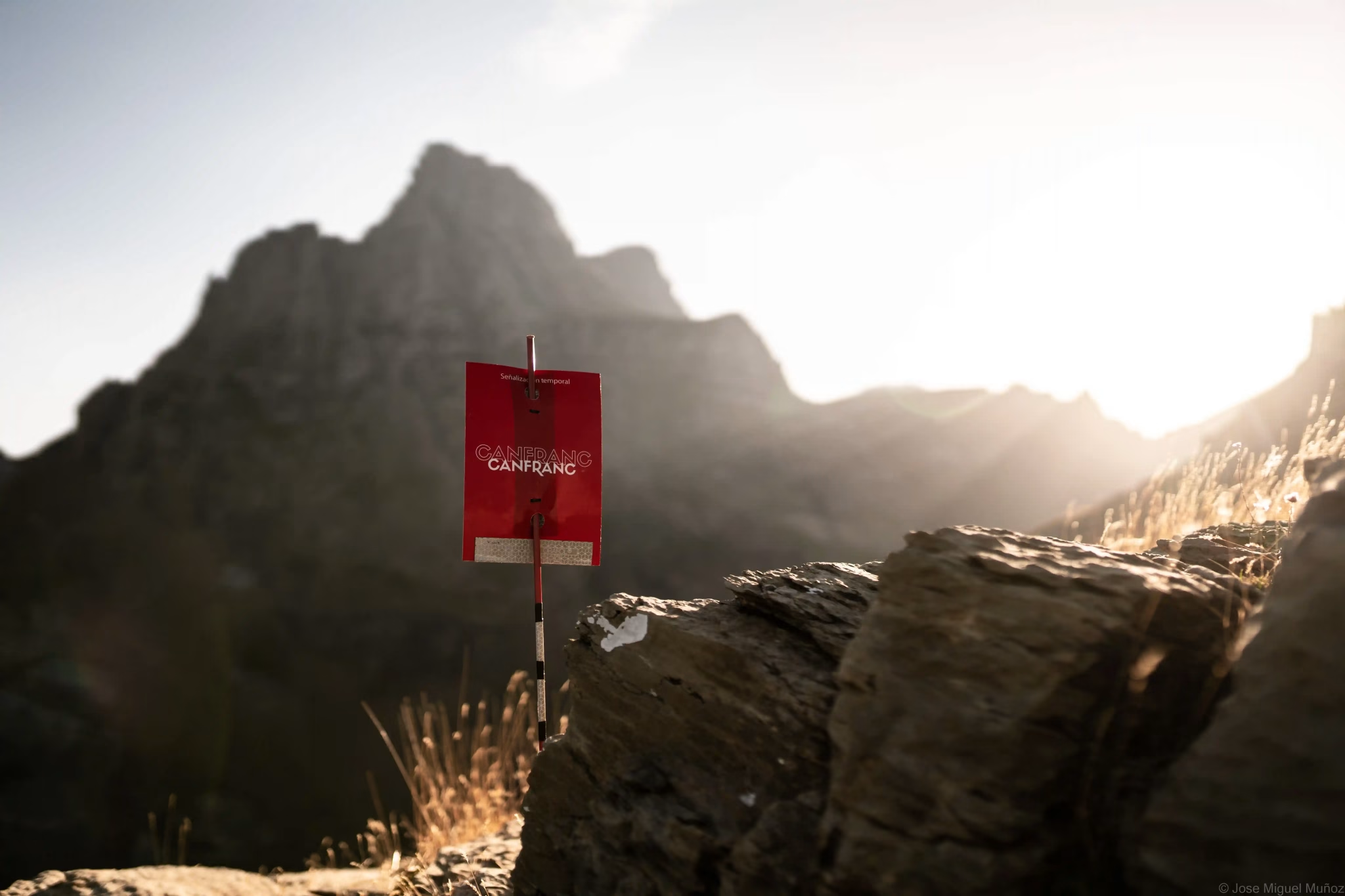
Why This Race Matters for USA Trail Running
So why should the rest of us care? Why should a weekend warrior grinding out long runs in the Rockies, Appalachians, the Wasatch, or the Cascades care about a World Championship in Spain?
Because this is where the sport shifts.
Trail running has always been fragmented—local races, regional heroes, cultures split between mountain specialists in Europe and ultra specialists in the U.S. UTMB created one version of unity by drawing the best athletes and brands into a single arena. But UTMB is still, at its core, a commercial spectacle. Beautiful, inspiring, but branded.
The World Championships offer something different, especially for USA Trail Running. They’re not about points or qualifiers. They’re about national teams. They’re about athletes putting aside sponsor alignments and personal race calendars to line up shoulder-to-shoulder under one flag.
That changes the stakes. A win here isn’t just another notch on an ultra resume—it’s a statement that USA Trail Running in the global conversation, not just as individuals but as a collective.
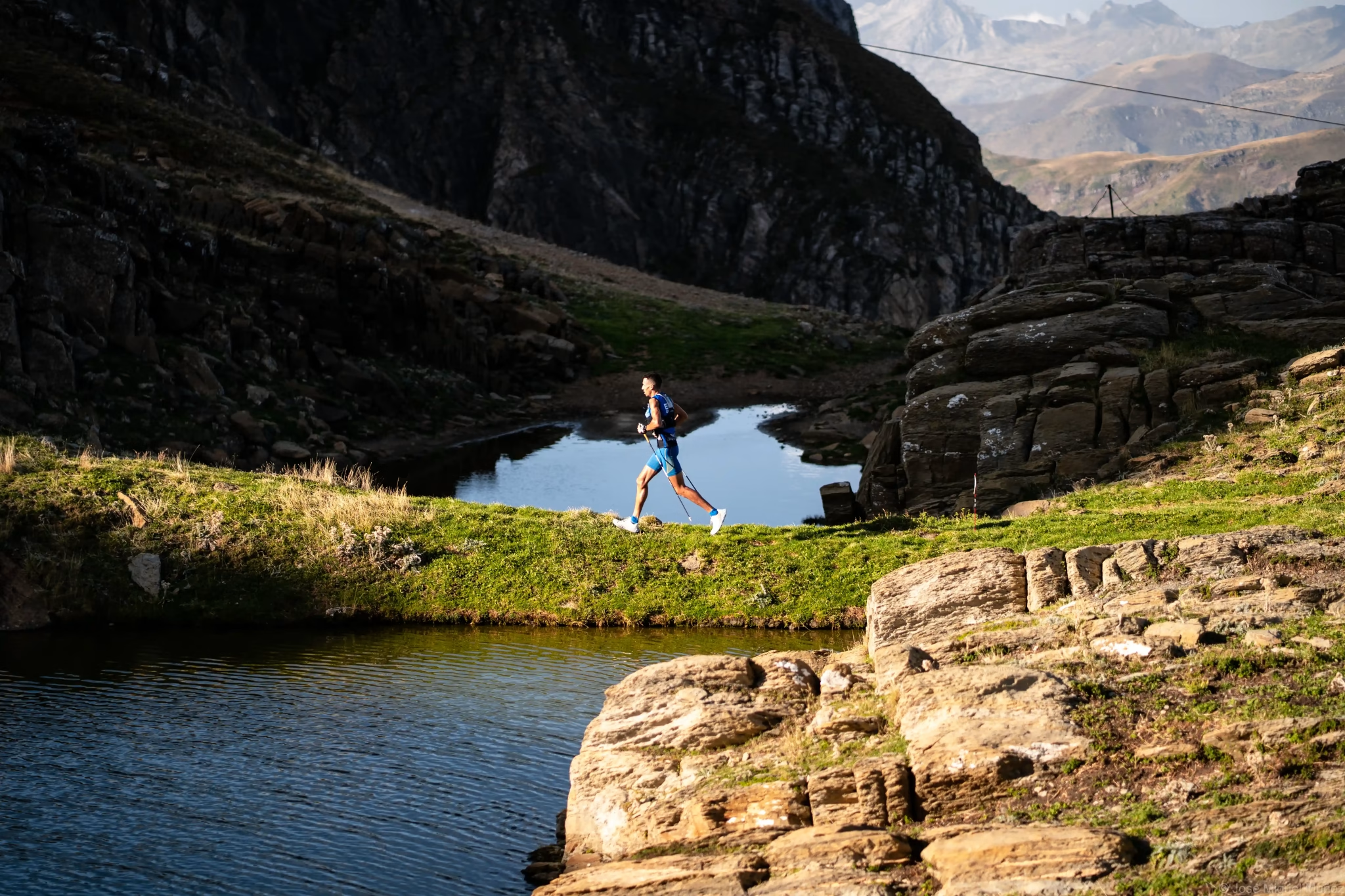
About Canfranc
Canfranc isn’t a random backdrop. It’s a crucible with history. The International Railway Station—once a hub for refugees, smugglers, and spies in World War II—now stands as a haunting monument, massive and ornate against the backdrop of jagged peaks. That station will frame the start and finish of the long trail race.
There’s symbolism here. Runners stepping onto a stage that has seen passage, exile, endurance. Mountains that don’t bend to marketing. Courses that don’t forgive.
When you compare it to UTMB’s carnival atmosphere, Canfranc feels like the opposite. Less about crowds and cameras, more about raw confrontation between runner and terrain. That’s the beauty of it—and the reason this championship may feel more honest than anything else in the sport right now.

UTMB and the World Stage
It’s natural to ask: where does this sit alongside UTMB? Which matters more?
For brand recognition and sheer cultural footprint, UTMB is still the giant. Every year, the world descends on Chamonix, and the storylines ripple across running media. But the World Championships represent something UTMB can’t replicate: a true international test with national pride on the line.
It’s not just “who’s the best sponsored athlete.” It’s “which nation has the depth, the discipline, and the courage to contend across disciplines.”
For USA Trail Running fans, that should matter. Because while we’ve celebrated individual triumphs in Europe—Jim Walmsley’s UTMB win, Courtney Dauwalter’s dominance—the U.S. hasn’t yet fully stamped its presence as a team. Canfranc is the chance to do that.
The Course is Brutal, Razor Thin Margin
I don’t know how the long trail race in Canfranc will play out for USA Trail Running. The Europeans are deep, the course is brutal, and the margin for error is razor thin. But I do know this: when the U.S. team steps onto that start line, something shifts.
For once, our story won’t just be Western States or UTMB. It won’t just be individual arcs or sponsor headlines. It will be collective.
That’s why this matters. That’s why I’ll be watching. And that’s why, in the quiet corners of our sport, this September in Spain may prove more important than any finish line in Chamonix.
Because medals fade. Buckles tarnish. Brands move on. But the chance to wear a jersey, to carry a flag, to represent not just yourself but your country—that doesn’t come often.
And when it does, it’s worth everything.
There’s more to say about the athletes, the course, and the history of Canfranc. For now, the question is simple: what does it mean to carry the jersey for USA Trail Running? The answer will unfold in the weeks ahead.




